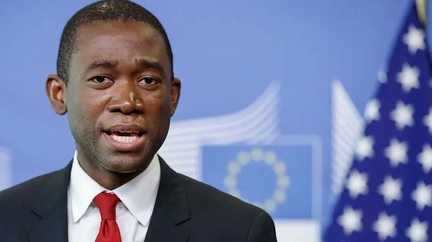
24 August 2022; MEMO: The United States has expressed its concerns to Turkiye over its ongoing business ties and trade with Russia, warning it of similar sanctions on Turkish businesses, if cooperation continues.
In a statement by the Turkish Industry and Business Association (TUSIAD) yesterday, it confirmed that the US Treasury and its Deputy Secretary, Wally Adeyemo, had sent a letter to the Turkish Association and the American Chamber of Commerce in Turkiye stating that companies and banks in the country are at risk of being sanctioned by Washington.
"Any individuals or entities providing material support to US-designated persons are themselves at risk of US sanctions," the letter stated, according to the Wall Street Journal. "Turkish banks cannot expect to establish corresponding relationships with sanctioned Russian banks and retain their corresponding relationships with major global banks as well as access to the US dollar and other major currencies."
That warning was issued after Adeyemo had made a rare visit to Ankara and Istanbul that same month, in which he also expressed the US's concerns over Turkish businesses' ties to Russian businesses and oligarchs, particularly in regards to the latter's use of Turkish entities to circumvent Western sanctions.
Since the launch of Russia's ongoing invasion of Ukraine in February, Turkiye has maintained and improved its ties with the Kremlin, despite condemning the military operation and supporting Ukraine politically, providing it with assistance, and selling arms to it.
READ: The US is pushing Turkey into Russia's arms
Ankara's ties with Moscow have particularly expanded in the economic sector, with the Turkish economy and banks facilitating the Russian MIR payment system after the Russian economy was cut off from the worldwide Western SWIFT payment system.
That facilitation has enabled Russian businesses and citizens to use Turkiye – along with other countries such as Belarus and those in central Asia and Latin America – as a conduit through which they operate financially with international markets and avoid Western sanctions.
Early this month, the two countries also agreed to partially pay for gas deliveries in rubles, further deepening bilateral economic ties and strengthening the standing of the Russian currency.
Throughout all that, Ankara has also refused to join in imposing sanctions on Russia and isolating it in any way, with the Turkish President Recep Tayyip Erdogan insisting that abandoning ties and cutting off dialogue will be counter-productive to negotiation efforts. In that sense, Turkiye is aiming to remain a neutral player and carry out a mediatory role.
The Turkish government seems to be aware that such steps could draw the ire of the US and Western nations, which could use the Turkish-Russian cooperation to justify imposing further sanctions against Turkiye, too.
Despite that, it insists that cannot directly oppose Russia due to heavy dependence on Russian energy imports and the harm that would beset the Turkish economy if it imposed similar measures against Russia.




